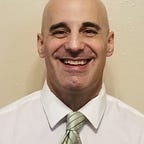Saying No to Relinquishing Personal Privacy to Your Employer and Restoring Your Reputation
What would you do — your employer demands you forfeit a personal belonging and chunk of your privacy to retain your good standing and pay level in the organization. Do you do it? Why — or why not?
“If you haven’t done anything wrong, you have nothing to worry about.”
Maybe you’ve heard people use that stock line as a blanket statement in response to questions about authority. Yet would you accept it if it was communicated to you in response to, say, turning over your cell phone, if your employer asked for it?
Would you see the value of giving it to them as proof of your innocence over concerns or worse, allegations? Or would you see it as outside of reasonable expectations and a violation of what is ethical, moral or legal?
Tony Imbrenda, a Los Angeles fire captain, deemed that demand too big of an “ask.” He was punished for resisting, being reassigned on the job, enduring a 50 percent reduction in pay, subjected to derogatory comments by other employees and feeling, reportedly, humiliated.
Imbrenda was one of the officials who responded to the fatal helicopter crash that killed retired basketball star Kobe Bryant, his teen daughter Gianna and seven other people, adults and children, on Jan. 26 in Calabasas, Calif.
At issue are “grisly” photos reportedly taken of some of the victims, which led to a reputation crisis for the Los Angeles County sheriff, who was sued by Bryant’s widow and mother of Gianna. The lawsuit alleges deputies shared graphic photos of victims from the crash site.
Bryant is seeking damages for negligence, invasion of privacy and intentional infliction of emotional distress.
Meanwhile, Imbrenda has filed his own lawsuit, naming Los Angeles County. The suit claims Imbrenda lost his position as fire department spokesman because he declined to turn over his personal cellphone, so it could be determined if he had played a role in unethically taking or possibly sharing photos of the victims.
He denies the allegations and feels deeply harmed by his employer, as his attorney states in their lawsuit.
“Imbrenda had an impeccable reputation in the Southern California PIO (Public Information Officer) community with extensive earning potential in his post fire service career…That potential is now totally destroyed.”
So how would you respond to such an unexpected chain of events, an invasion of personal privacy and punitive reactions by an employer for deciding to say something along the lines of, no, you cannot view or dig into my personal privacy?
It appears and yes, this is purely speculation, that Imbrenda not only did not take any photos of victims but does not have any images still on his phone that other workers may have sent to him. Imbrenda was being treated poorly however for not surrendering his phone to be researched.
He has sought legal remedy. That might provide him most or all of what he is seeking: a day to tell his story, punching back, exoneration, validation and a hefty legal settlement. Yet it might not result in his name and reputation being fully vindicated and him being allowed to work, if he still desires to do so.
To succeed to a higher degree, Imbrenda may very well need to tell his story, (with support from trustworthy people who know what happened) to the media and powerful and influential people in his field and profession, anywhere where he might care to be viewed positively and be able to work.
It hurts to be falsely judged and accused, then punished as if you have committed the decision making and acts people believe in their minds. It also hurts to be muscled and punished for not going along with authority overreach, confirmation bias and its decision not to be humble, listen, learn and understand how it might not be ruling on the truth.
A person or organization both can feel like they are powerless in such situations and in a legal or workplace context, that could be reality, yet not always. In the job market and court of public opinion, things can change: perceptions, understanding, beliefs and decisions.
That’s why learning how to communicate wisely and skillfully in response is critical in such situations. Imbrenda is not unlike many people before him, others like him currently and people who will be like him in the future. People judge others falsely. Biases happen. Ego happens. A rush to judgment occurs.
Learning to stay poised and think big picture and how to communicate most ethically and skillfully to succeed are part of the path we often have to walk on the way through and out reputation crisis and pain.
Michael Toebe is a reputation and crisis analyst and practitioner, serving individuals and organizations. He serves as a researcher, analyst, consultant, advisor, coach and communications provider and has provided analysis and advisory for online publications Chief Executive, Corporate Board Member, Corporate Compliance Insights, New York Law Journal and Training Industry and regularly publishes at Red Diamonds Essays and Reputation Specialist Essays (both on the Medium platform) and LinkedIn.
